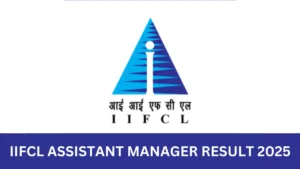SBI PO Quantitative Aptitude Quiz
Here, we are providing free crash course for SBI PO as there is left not enough time to deal in details. The questions asked in the quantitative aptitude section are calculative and very time-consuming. But once dealt with proper strategy, speed, and accuracy, this section can get you the maximum marks in the examination. Following is the Quantitative Aptitude quiz to help you practice with the best of latest pattern questions
Q1. Aman, Bhasker and Chiru enter into a partnership. Aman contributes one third of the total capital invested by all, while Bhasker contributes as much as contributed by Aman and Chiru together. If the total profit at the end of year is Rs. 84000 then, how much profit would each receive at the end of the year(in Rs.) (All three invested for 1 year).
Q2. Two pipes A and B together can fill a tank in 20 hours. Ratio of efficiency of A and B is 5 : 4. They together started filling the tank and after 4 hours B is closed and another pipe C is opened. Now if tank is filled in another 9 hours then find C alone can fill the tank in how many hours.
Q3. In a town, the population was 8000. In one year, male population increased by 10% and female population increased by 8% but the total population increased by 9%. Initially the number of males in the town was:
Q4. Train A starts its journey from Puri to New Delhi while train B starts from New Delhi to Puri. After crossing each other they finish their journey in 81 hours and 121 hours respectively. Then what will be speed of train B if train A speed is 44 km/h?
Q5. A cloth seller purchased 75 jeans at the price of Rs. 750 each and 80 shirts at the price Rs. 525 each, he spent Rs.3750 on transport of jeans and Rs. 2000 on transport of shirts and marked up jeans on 35% and shirt on 40% above cost price. At the time of selling if seller allows discount of on jeans and
on jeans and on shirts, find the overall profit percent of seller in this transaction?
on shirts, find the overall profit percent of seller in this transaction?
Directions (6-10): - Pie chart given below shows the availability of six types of crops which a dealer has and bar chart given below shows percentage of fresh crops out of total crops. Study the data carefully and answer the following questions.


Note: Total Others Crop = 15 ton
Total Crops = Fresh Crop + Non-fresh Crop
Q6. The cost price of non-fresh rice is 20% lower than that of fresh rice. If the dealer sells all the rice that he has at a price 10% more than the cost price of fresh rice, then find his approximate overall profit percentage.
Q7. What is the ratio of fresh mustard to non-fresh millet.
Q8. If the ‘others’ compromises of 3 different crops A, B and C and these are in the ratio of 1 : 2 : 2. Also ratio of cost per ton of these is in 5 : 1 : 2 respectively. Find the total cost of whole ‘others’ crop if 1 ton of B cost Rs.10000.
Q9. Fresh wheat comes from 3 different places & these have 6% impurity,12% impurity and 0% impurity and quantity of these categories is in ratio 1: 5:1 respectively. Find the total impurity in fresh wheat.
Q10. If the profit earn from beans is Rs. 4000/ton and from mustard is 6000/ton. Find the difference of total profit earned from these crops.
Directions (11-15): Find the approximate value of given question:
Q14. 158.004 × 4.06 + 20.12% of 849.86 + ? = 950.93







 GA Capsule for SBI Clerk Mains 2025, Dow...
GA Capsule for SBI Clerk Mains 2025, Dow...
 The Hindu Review October 2022: Download ...
The Hindu Review October 2022: Download ...
 IIFCL Assistant Manager Result 2025 Out,...
IIFCL Assistant Manager Result 2025 Out,...





